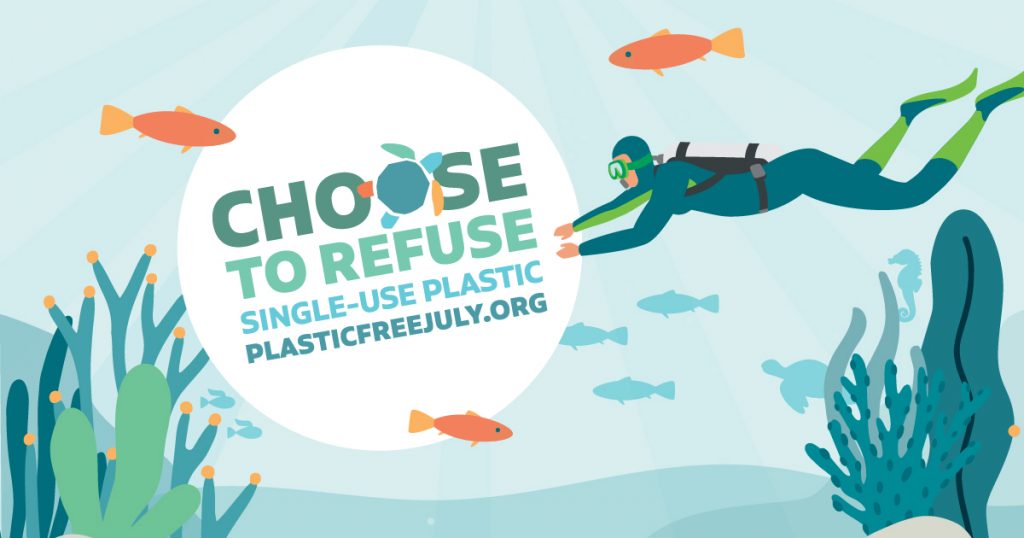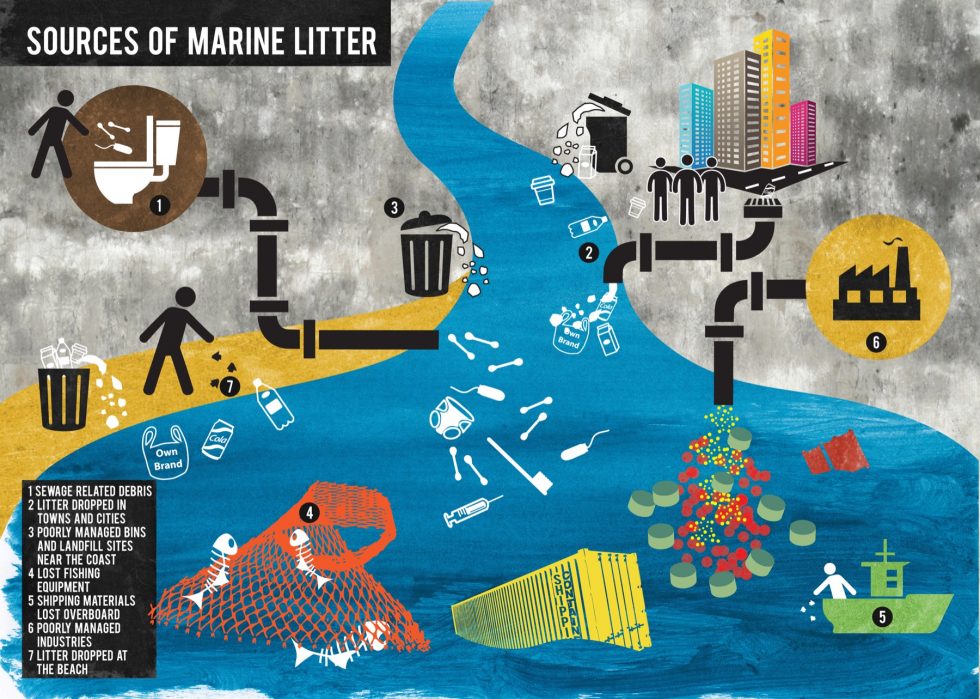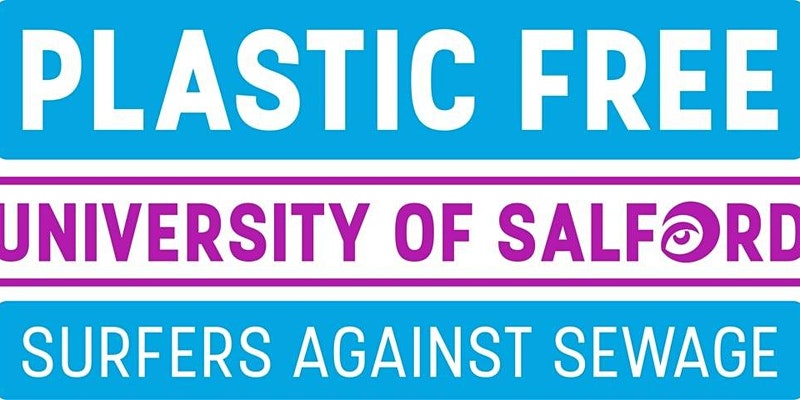Plastic Free July is an annual campaign to raise awareness around one of the world’s biggest environmental challenges: plastic pollution. It has been running since 2011 and currently it is one of the most influential environmental campaigns in the world. In 2020, Plastic Free July was supported by 326 million participants worldwide.

Why plastic-free?
There are about 5 trillion particles of plastic on Earth, weighing about as much as 1,300 adult blue whales. You might have heard this before, but if we continue using and throwing away as much plastic as we are right now, the ocean is expected to contain more plastics than fish by weight by 2050. Marine plants produce 70% of our oxygen so it’s important we take care of them and their environment.
Plastic can be deadly for wildlife because animals can get tangled in it or mistake it for food. This can affect any animal – from deep-sea fish to our local hedgehogs. As a result, it harms us, too – currently 1 in 3 fish caught for human consumption contains plastic. When plastic finds its way into sea water, it also produces chemicals which can cause hormonal disruptions or even cancers. But that’s not the only way plastic can harm our health; microplastic can be inhaled and then prevail in our lungs and cause damage.
Plastic pollution in coastal regions can be financially detrimental, as coastal tourism is worth more than £5bn to the UK economy. It can also put at risk the livelihoods of people who work in this industry, as polluted beaches attract less tourists.
Plastic also contributes to climate change, due to the emissions it causes at every stage of its lifecycle: from production, through transport, to disposal. In fact, according to a recent report by the Centre for International Environmental Law, plastic is among the most significant and rapidly growing sources of industrial greenhouse gas emissions.
How does plastic end up in the ocean? Much of it comes from lost fishing gear and spillages from ships, However, a large portion of it comes from land-based sources. This includes landfills but also litter dropped by us in the streets. A large part of this pollution consists of single use plastic, such as disposable bags or cups.

What’s the solution?
The main benefits of plastic, and the reasons why its use has become so widespread, are its durability, strength and flexibility. Unfortunately, this is also what makes it so dangerous for our environment. Due to its stable chemical structure, plastics do not biodegrade or dissolve in water. As a result, every piece of plastic that has ever been produced is still with us in some form.
The solution is not as easy as just eliminating it completely. Firstly, even if we managed to scoop up all plastic from the oceans (which is impossible), we have nowhere to move it to. Also, while many single use plastics can be avoided or replaced, we shouldn’t forget that there are some exceptions where we need them for safety and protection. Examples include using plastics for food and water safety (especially during emergency responses or aid efforts), in medicine (disposable gloves, masks and aprons are used to ensure safety of doctors and patients), and research (single use lab equipment helps avoid cross contamination). Certain single use plastic items, such as straws and wipes, are also helpful, and often necessary, for people with disabilities.
Instead, we need to focus on identifying single use plastics around us which can be safely avoided – both at home and at work. And this is exactly what Plastic Free July is all about. The campaign encourages individuals, communities and businesses to become more aware of the issue of plastic pollution and the impact our choices have on the environment. It also aims to inspire and empower us to take small steps towards more sustainable habits, which lead to lasting changes. Excited to get started? On this Plastic Free July webpage you can find lots of useful tips and ideas for simple plastic-free swaps.
How can you get involved?
- Take the Plastic Free July Challenge. No matter if you’re completely new to the plastic-free world, or if you’ve already made some swaps and changes in your life, the Challenge is all about trying out new habits and doing your best. It’s up to you how much time and effort you spend on it – every action counts. When you sign up, throughout July you will also receive useful plastic-free tips and tricks to make this journey easier. And if you need some help identifying avoidable plastics that sneak into your shopping cart and cupboards, you can also take the Plastic Free July Quiz.
- Join the Plastic Free UoS campaign. Launched in March, it aims to eliminate all avoidable single use plastics from our stationery, catering and labs, in support of the PlasticFreeGM pledge – the first city-region wide plan to drive down avoidable single-use plastics. As part of the campaign, we’re working with a marine conservation charity, Surfers Against Sewage, to become a Plastic Free Community. Here you can read more about the campaign and our University’s commitment. To get involved, you can join our Teams group, or get in touch with the Sustainability Team if you have any questions. You can also follow the campaign on social media: Twitter and Instagram.

Sources: Plastic Free July, Surfers Against Sewage, Centre for International Environmental Law, Ellen McArthur Foundation
Photo credit: Plastic Free July, Surfers Against Sewage